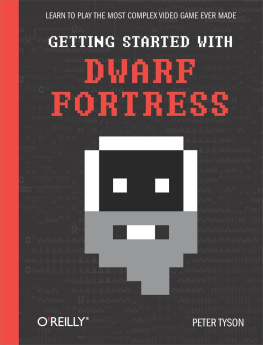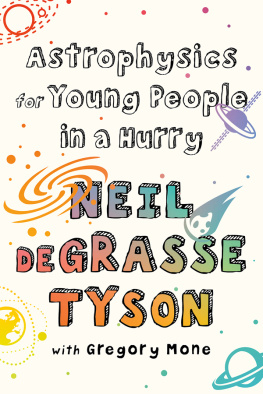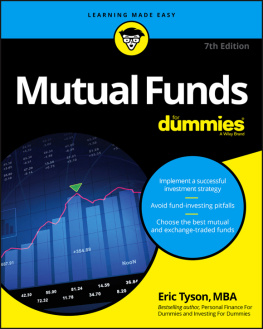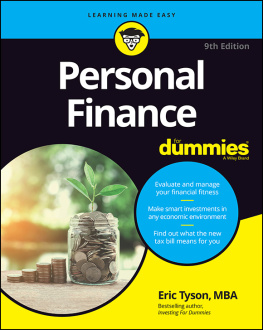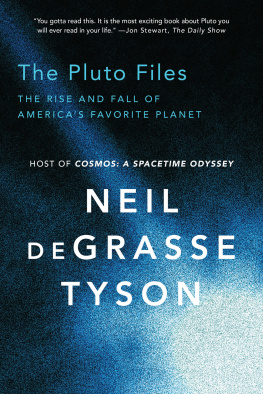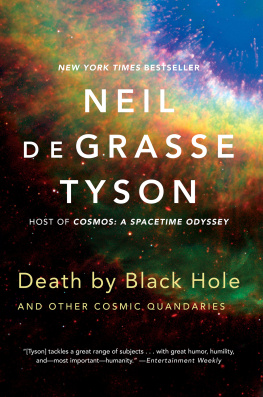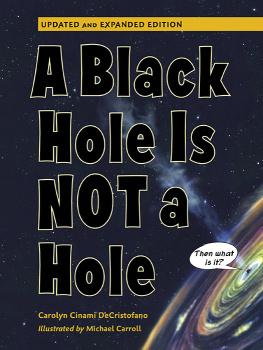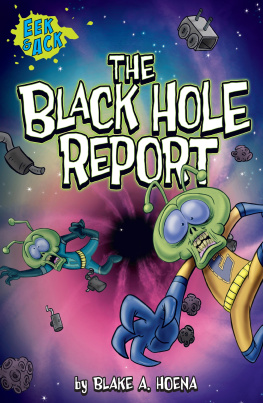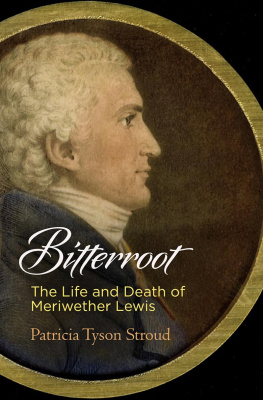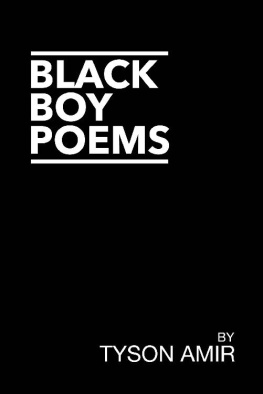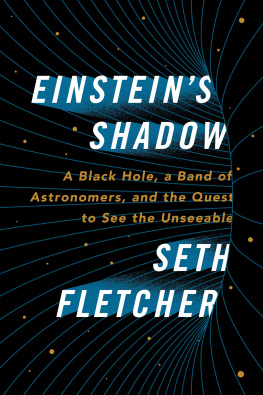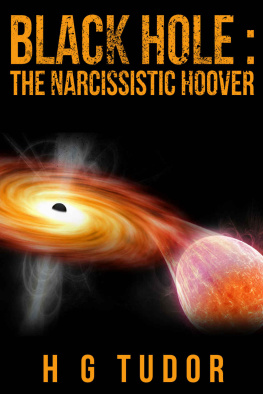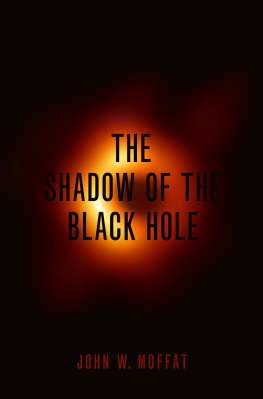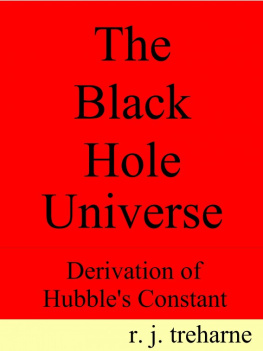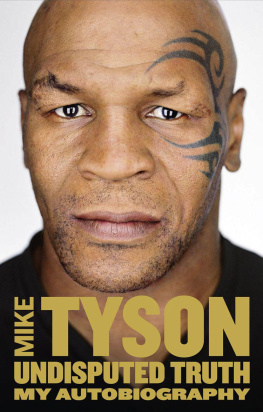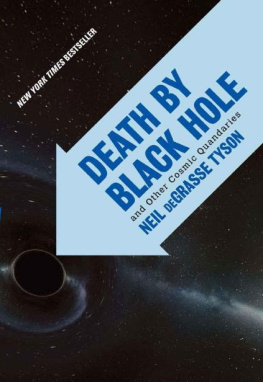Tyson - Death by Black Hole
Here you can read online Tyson - Death by Black Hole full text of the book (entire story) in english for free. Download pdf and epub, get meaning, cover and reviews about this ebook. year: 2014;2008, publisher: W W Norton & Co Inc, genre: Religion. Description of the work, (preface) as well as reviews are available. Best literature library LitArk.com created for fans of good reading and offers a wide selection of genres:
Romance novel
Science fiction
Adventure
Detective
Science
History
Home and family
Prose
Art
Politics
Computer
Non-fiction
Religion
Business
Children
Humor
Choose a favorite category and find really read worthwhile books. Enjoy immersion in the world of imagination, feel the emotions of the characters or learn something new for yourself, make an fascinating discovery.
- Book:Death by Black Hole
- Author:
- Publisher:W W Norton & Co Inc
- Genre:
- Year:2014;2008
- Rating:3 / 5
- Favourites:Add to favourites
- Your mark:
- 60
- 1
- 2
- 3
- 4
- 5
Death by Black Hole: summary, description and annotation
We offer to read an annotation, description, summary or preface (depends on what the author of the book "Death by Black Hole" wrote himself). If you haven't found the necessary information about the book — write in the comments, we will try to find it.
Tyson: author's other books
Who wrote Death by Black Hole? Find out the surname, the name of the author of the book and a list of all author's works by series.
Death by Black Hole — read online for free the complete book (whole text) full work
Below is the text of the book, divided by pages. System saving the place of the last page read, allows you to conveniently read the book "Death by Black Hole" online for free, without having to search again every time where you left off. Put a bookmark, and you can go to the page where you finished reading at any time.
Font size:
Interval:
Bookmark:
DEATH BY BLACK HOLE
Tyson proves that no topic is too big or small for his scrutiny. [He] tackles an impressive range of subjectswith great humor, humility, andmost importanthumanity.
Wook Kim, Entertainment Weekly
[Tyson] demonstrates a good feel for explaining science in an intelligible way to interested lay readers; his rather rakish sense of humor should aid in making the book enjoyable.
Library Journal
Neil deGrasse Tyson has mined his columns from Natural History magazine for his most interesting essays on exploring the cosmos [written] in his characteristically fun and jaunty style.
Sky and Telescope
Highly enjoyable.
Bookends
Tysons style will connect with general readers. Whatever readers scientific tastes, something in Tysons wide-ranging collection will sate them.
Gilbert Taylor, Booklist
Vibrant collection of essays.
Book Passage
Dr. Tyson has a grand time dissecting certain forms of foolishness. Get it, plan to savor it. Savor Coming to Our Senses, a gorgeous dissection. Its one of those essays that makes you call up your friends and start reading quotes over the phone. Light, elegant and rich.
Angela Gunn, USAToday.com
An exciting journey through the extremes of the universe.
Commonwealth Science News
The ideal book for those fascinated by space, the cosmos, black holes, and all the questions and wonders therein. The perfect book for the reader who wants simple and clearly defined answers.
Alex Telander, Bookloons.com
Tyson comes across as having an excellent grasp of the current state of astrophysics, cosmology, chemistry and other scientific disciplineshe conveys knowledge clearly to the nonspecialist, often with ingratiating humor and wit.
Roy E. Perry, The Tennessean
[An] eclectic mix of subjects. Of most value in the book is Tysons thorough explanation of each subject, enlarging the readers understanding, even about familiar things.
Kathy Avakian, Journal of Amateur Astronomers Association of New York
Origins: Fourteen Billion Years of Cosmic Evolution
(with Donald Goldsmith)
My Favorite Universe
(A 12-Part Video Lecture Series)
One Universe: At Home in the Cosmos
(with Charles Liu & Robert Irion)
Cosmic Horizons: Astronomy at the Cutting Edge
(with Steven Soter, eds)
The Sky Is Not the Limit:
Adventures of an Urban Astrophysicist
Just Visiting This Planet
Universe Down to Earth
Merlins Tour of the Universe
AND OTHER COSMIC QUANDARIES

W. W. NORTON & COMPANY
New York London
Copyright 2007 by Neil deGrasse Tyson
All rights reserved
For information about permission to reproduce selections from this book, write to Permissions, W. W. Norton & Company, Inc., 500 Fifth Avenue, New York, NY 10110
Production manager: Amanda Morrison
Library of Congress Cataloging-in-Publication Data
Tyson, Neil deGrasse.
Death by black hole: and other cosmic quandaries / Neil deGrasse Tyson.1st ed.
p. cm.
Includes bibliographical references.
ISBN: 978-0-393-11378-5
1. Black holes (Astronomy) 2. Cosmology. 3. Astrobiology. 4. Solar system. 5. Religion and science. I. Title.
QB843.B55T97 2007
523.8'875dc22
2006022058
W. W. Norton & Company, Inc., 500 Fifth Avenue, New York, N.Y. 10110
www.wwnorton.com
W. W. Norton & Company Ltd., Castle House, 75/76 Wells Street, London W1T 3QT
SECTION 1 THE NATURE OF KNOWLEDGE
The challenges of knowing what is knowable in the universe
SECTION 2 THE KNOWLEDGE OF NATURE
The challenges of discovering the contents of the cosmos
SECTION 3 WAYS AND MEANS OF NATURE
How Nature presents herself to the inquiring mind
SECTION 4 THE MEANING OF LIFE
The challenges and triumphs of knowing how we got here
SECTION 5 WHEN THE UNIVERSE TURNS BAD
All the ways the cosmos wants to kill us
SECTION 6 SCIENCE AND CULTURE
The ruffled interface between cosmic discovery and the publics reaction to it
SECTION 7 SCIENCE AND GOD
When ways of knowing collide
My own suspicion is that the Universe is not only queerer than we suppose, but queerer than we can suppose.
J. B. S. H ALDANE
Possible Worlds (1927)
I see the universe not as a collection of objects, theories, and phenomena, but as a vast stage of actors driven by intricate twists of story line and plot. So when writing about the cosmos, it feels natural to bring readers into the theater, behind the scenes, to see up close for themselves what the set designs look like, how the scripts were written, and where the stories will go next. My goal at all times is to communicate insight into how the universe works, which is harder than the simple conveyance of facts. Times arise along the way, as for the drama icon itself, to smile or to frown when the cosmos calls for it. Times arise to be scared witless when the cosmos calls for that, too. So I think of Death by Black Hole as a readers portal to all that moves, enlightens, and terrifies us in the universe.
Each chapter first appeared, in one form or another, on the pages of Natural History magazine under the heading Universe and span the 11-year period of 1995 through 2005. Death by Black Hole forms a kind of Best of the Universe and includes some of the most requested essays I have written, mildly edited for continuity and to reflect emergent trends in science.
I submit this collection to you, the reader, for what might be a welcome diversion from your days routine.
Neil deGrasse Tyson
New York City
October 2006
M y formal expertise in the universe concerns stars, stellar evolution, and galactic structure. And so I could not possibly write with authority about the breadth of subjects in this collection without the careful eyes of colleagues whose comments on my monthly manuscripts often made the difference between a simple idea described and an idea nuanced with meaning drawn from the frontier of cosmic discovery. For matters regarding the solar system, I am grateful to Rick Binzel, my former classmate in graduate school and now professor of Planetary Sciences at MIT. He has received many a phone call from me, in desperate search of a reality-check on what I had written or what I had planned to write about the planets and their environments.
Others in this role include Princeton Astrophysics Professors Bruce Draine, Michael Strauss, and David Spergel whose collective expertise in cosmo-chemistry, galaxies, and cosmology allowed me to reach deeper into that store of cosmic places than would otherwise be possible. Among my colleagues, the ones who are closest to these essays include Princetons Robert Lupton, who, being properly educated in England, looks to me as though he knows everything about everything. For most of the essays in this volume, Roberts remarkable attention to scientific as well as literary detail provided reliable monthly enhancement to whatever I had penned. Another colleague and generalist who keeps watch over my work is Steven Soter. My writings are somehow incomplete without first passing them to his attention.
From the literary world, Ellen Goldensohn, who was my first editor at Natural History magazine, invited me to write a column in 1995 after hearing me interviewed on National Public Radio. I agreed on the spot. And this monthly task remains one of the most exhausting and exhilarating things I do. Avis Lang, my current editor continues the effort begun by Ellen, ensuring that, without compromise, I say what I mean and mean what I say. I am indebted to both of them for the time they have invested to make me be a better writer. Others who have helped to improve or otherwise enhance the content of one or more essays include Phillip Branford, Bobby Fogel, Ed Jenkins, Ann Rae Jonas, Betsy Lerner, Mordecai Mark Mac-Low, Steve Napear, Michael Richmond, Bruce Stutz, Frank Summers, and Ryan Wyatt. Hayden volunteer Kyrie Bohin-Tinch made a heroic first pass at helping me to organize the universe of this book. And I offer further thanks to Peter Brown, editor-in-chief of Natural History magazine, for his overall support of my writing efforts and for granting permission to reproduce the essays of my choice for this collection.
Font size:
Interval:
Bookmark:
Similar books «Death by Black Hole»
Look at similar books to Death by Black Hole. We have selected literature similar in name and meaning in the hope of providing readers with more options to find new, interesting, not yet read works.
Discussion, reviews of the book Death by Black Hole and just readers' own opinions. Leave your comments, write what you think about the work, its meaning or the main characters. Specify what exactly you liked and what you didn't like, and why you think so.


